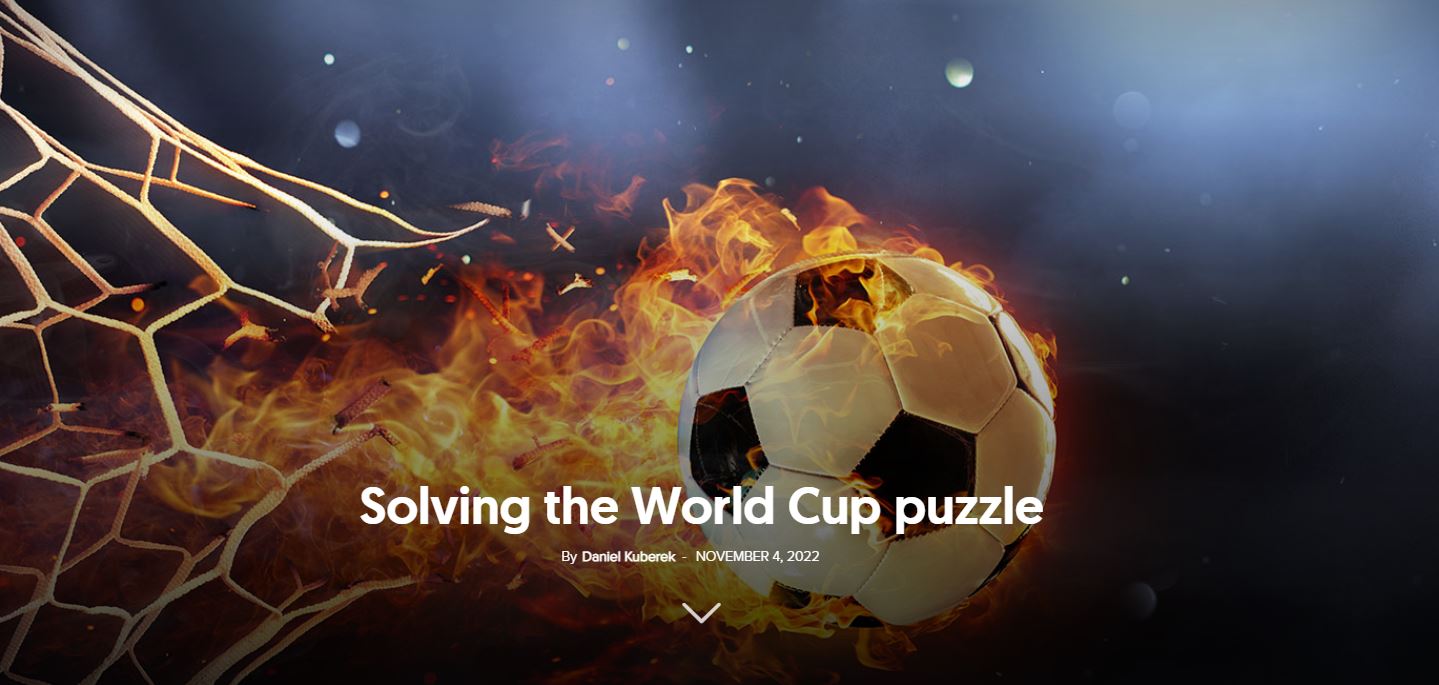Faith and sports are strange bedfellows, and with the FIFA World Cup just around the corner, it is perhaps the only time in the world that more prayers are offered up to any god, as nearly half the planet will tune in to watch the tournament. Like most committed sports fans, I will be one of those billions hanging on to every moment, making earnest, desperate, supplications for a favourable outcome.
When the question arises in the mind of an athlete over a political, social or religious position which may conflict with their beliefs, it can be a very unforgiving proposition. As I was writing this piece, my memory was jarred by the story of Carlos Roa, the Argentinian goalie who played in the 1998 World Cup.
A devoted Seventh-day Adventist, Roa was the exception to the rule as far as Adventists in global sports in the 1990s was concerned. He had been privileged to play at a World Cup, ascend to the heights of being one of the best shot-stoppers in the global game, and just when he was at the pinnacle of his career and the financial offers were beginning to come his way, Roa made a decision that sent shockwaves across the sporting landscape. He quit.
Not because of injury or a decline in his powers. No, Carlos Roa walked away from the sport he loved, because he believed the end of the world was near in 1999. It was a personal conviction based on his own interpretation of apocalyptic Scripture. It was a tough decision to understand, even for me—an Argentinian fan and a fellow Seventh-day Adventist—but the sporting world does not wait for anyone.
In later interviews, Roa has admitted to regretting his temporary retirement from the game he loved, but not so much the religious reasons behind it. I would love an opportunity to interview Roa one day. His story must be a fascinating one.
Choosing faith over glory
Refusing to compromise on your faith is a tough ask. Christians would cite specific Bible passages to justify such a stance. Moses, Joseph and Daniel are three biblical characters who were all placed in compromised situations that tested their resolve to their religious creed, and they notably chose faith over glory.
But for an athlete, especially one who has devoted all their lives perfecting their craft, waiting for such an opportunity, only to have it snatched away, can have a very detrimental impact on their faith and their mental health. Quoting Bible verses, despite their ability to soothe a troubled mind, usually help when looking back, rather than addressing the immediate pain and disconnect that they must surely feel.
Elite athletes, having invested their lives at the expense of personal pleasures, live for the chance to validate years of training. Perhaps all of them can tell tales of monetary loss, leaving behind family and friends, giving up academic or even romantic pursuits, in their quest for glory. Many athletes even struggle with the natural end of their careers. But it is a much more traumatic experience if they are asked to give it up prematurely.
The psychological impact
Keiann John, a Christian author and mental health professional, says the burden for athletes who have religious convictions and public expectations adds a different dimension. “The animosity they can feel from opposing fans, while it can be used to fuel the competitive desire, will rub even the most determined pacifist the wrong way,” she says.
“Then there is also the guilt associated with the reproach that may be directed their way when certain behaviours do not align with their faith. Conservatives can be a tough crowd, much more so than the painted faces that scream insults from the stands.” She concedes that making that career-ending decision can be a very traumatic experience.
“Studies have shown that athletes who have had to end their careers prematurely, struggle with grief and loss, social support, financial instability and of course, after years of what they believed defined their nature, being taken away from the sport they love, results in a loss of identity for many.”
Money cannot ease your conscience
A former promising soccer player who now works as a college athletics coach said the decision was taken out of his hands. His parents’ beliefs denied him certain opportunities to pursue his dream of a professional sporting career. Now on the verge of starting his own family, he has a more moderate approach to things. “I would manage my kids’ aspirations differently. The system allows for a wider integration of young athletic talent from diverse backgrounds.” But on certain social justice issues of the present day and the past, he is adamant that should he have to make a choice now, he would choose his faith. “Money cannot ease a man’s conscience,” he explains.
These decisions are nothing new. Social issues that challenged Muhammad Ali had to do with religious convictions and his opposition to the Vietnam war, which led to him being stripped of all his titles. Tommie Smith and Jon Carlos raised their fist at the ’68 Summer Olympics and became instant pariahs. Recently, US women’s football star Megan Rapinoe lent her significant social presence to causes that could change the state of play for women in sports and other social issues, and received unfair and unjustified criticism.
Of course, who could forget NFL quarterback Colin Kaepernick choosing to kneel in protest at racial injustices in America, which divided sports fans as the conversation was mercilessly hijacked and twisted into a debate about patriotism. Then there is the heartwarming story of Scottish runner Eric Liddell, who famously skipped the 100m qualifiers at the 1924 Paris Olympics due to his religious beliefs and returned to win gold in the 400m several days later.
The ability of sports to unite means it also has the potential for the opposite effect. Today, it may be a personal stance on the rights to free speech, or perhaps a very antagonistic stance on gay rights, like football’s fullback Israel Folau, or being on the wrong side of a politically polarising position related to a government’s foreign policy, as so many Russian and Belarussian athletes have discovered.
Whatever side of these very dividing narratives they sit on, the answers are difficult as it would be impossible to please everyone. When faith is thrown into the mix, however, only the athlete must be at peace with their decision. In this uniquely personal dynamic, it is their walk with God that influences their choices, and no matter how much we as adoring fans may agree or disagree, it is their call to make.
It is a difficult conundrum finding the right balance between vocation and faith in most career choices. For mega sporting stars, however, the decision comes with the added burden of fan expectation, national representation, multi-million-dollar endorsement offers, foregoing the possibility of displaying their talent on the world stage at major events like the World Cup, or the once-in-a-lifetime opportunity at winning a title.
As believers, these individuals can be challenged by the paradox of using the best of their God-given talents for His glory, or rejecting the pursuit of sporting legacy to satisfy the rules of their faith. As a result, scores of athletes find themselves hamstrung by belief. But like most hamstring injuries, the setback is only temporary; Carlos Roa did return to topflight football, managing to honour the Sabbath while earning a living using his God-given talent.
He now coaches in the US. Eric Liddell’s ministry and legacy was immortalised in the film Chariots of Fire because he stood for God. And Muhammed Ali emerged from his five-year setback to become the greatest boxer of all time, a global phenomenon and inspiration to countless millions. Every setback may be the springboard to a glorious comeback.
Nigel Byng is a freelance writer based in West Palm Beach, Florida. A version of this article first appeared on the Signs of the Times Australia/New Zealand website and is republished with permission.




















